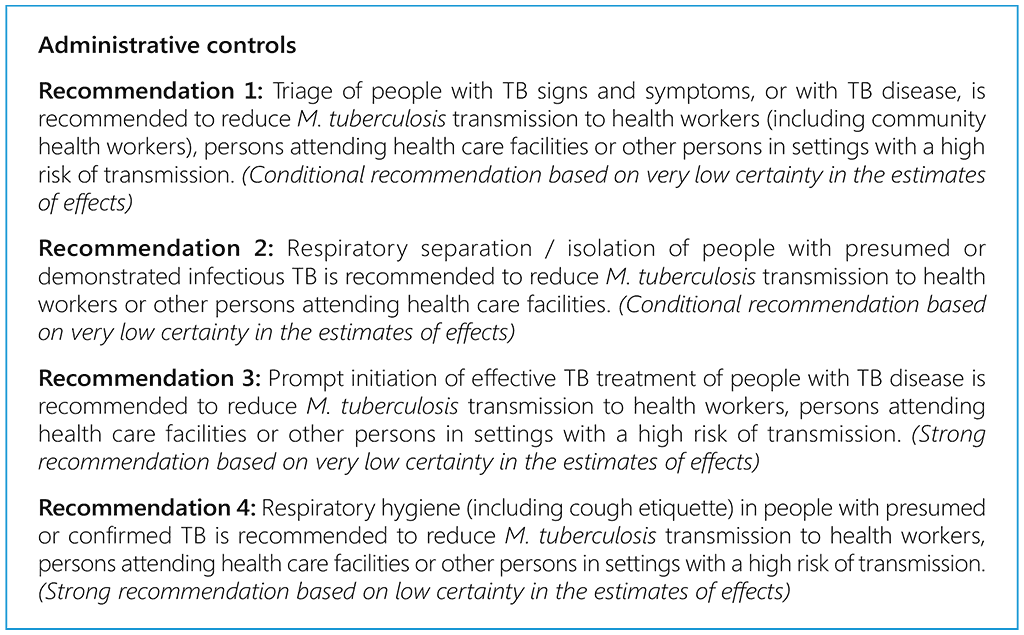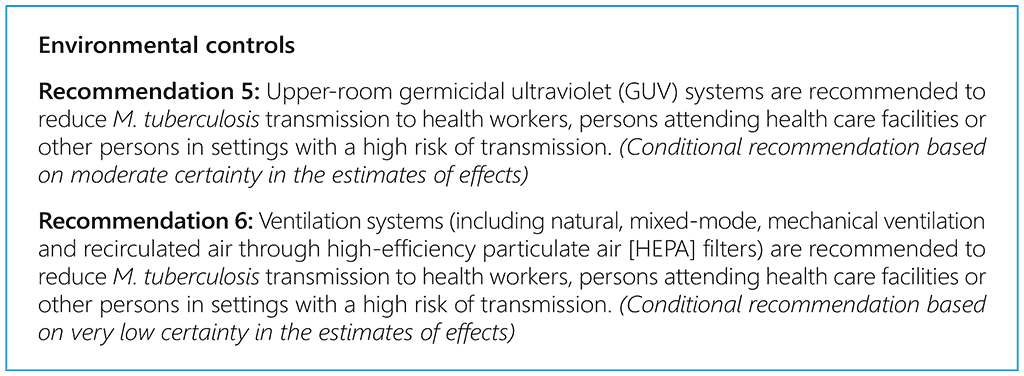Objective
The objective of these guidelines is to provide updated, evidence-informed recommendations outlining a public health approach to preventing transmission of M. tuberculosis within the clinical and programmatic management of TB, and to support countries in their efforts to strengthen or build reliable, resilient and effective IPC programmes.

 Feedback
Feedback

